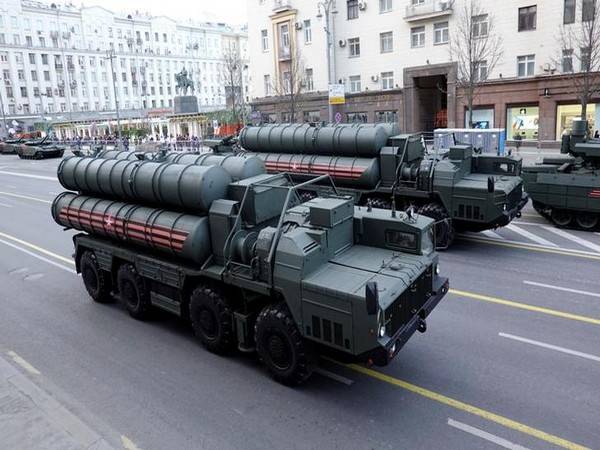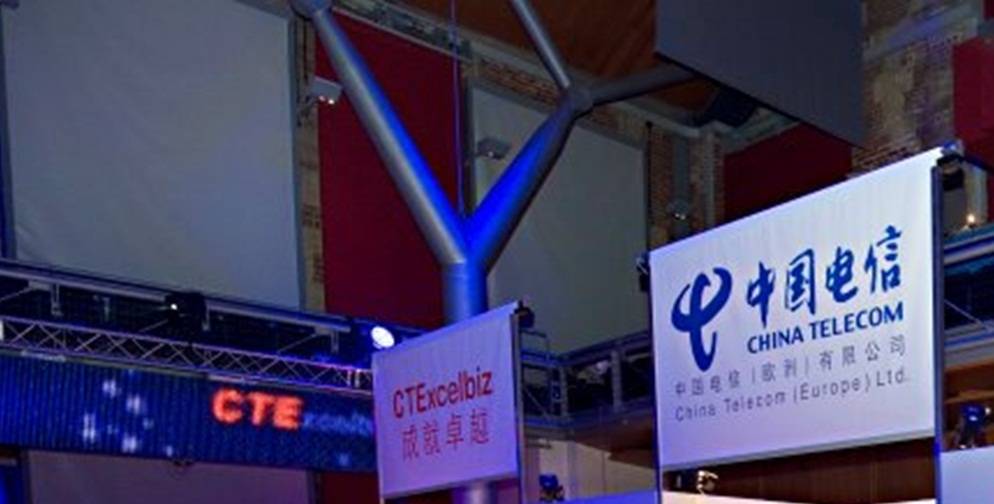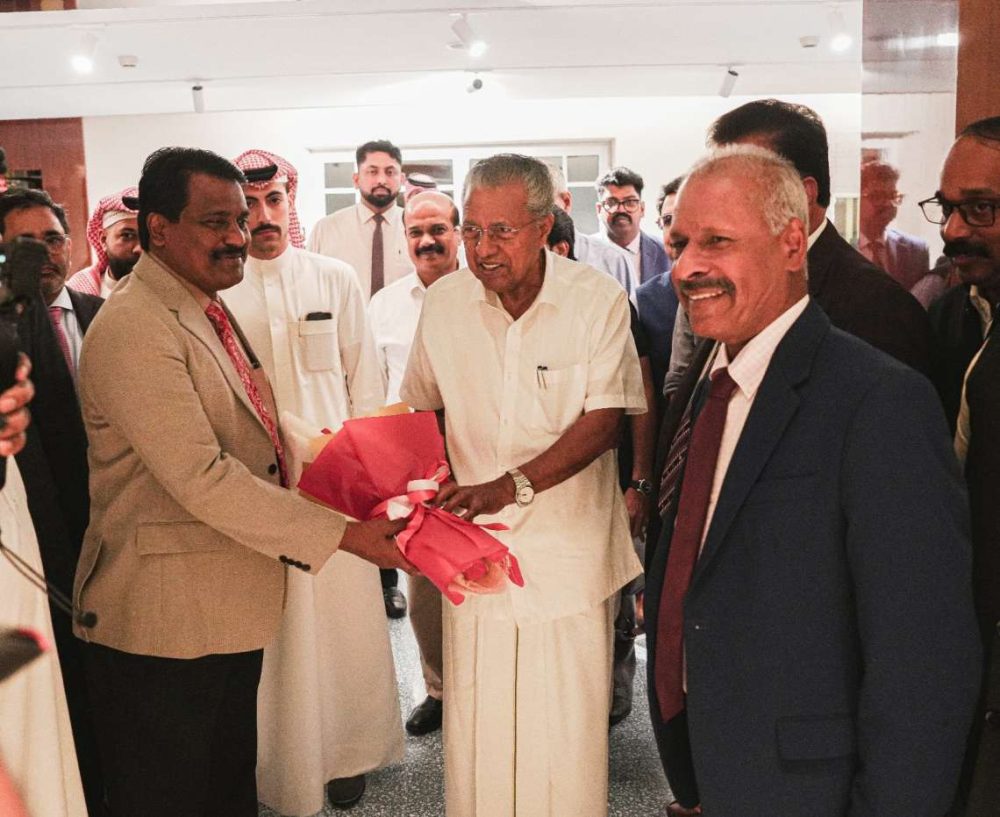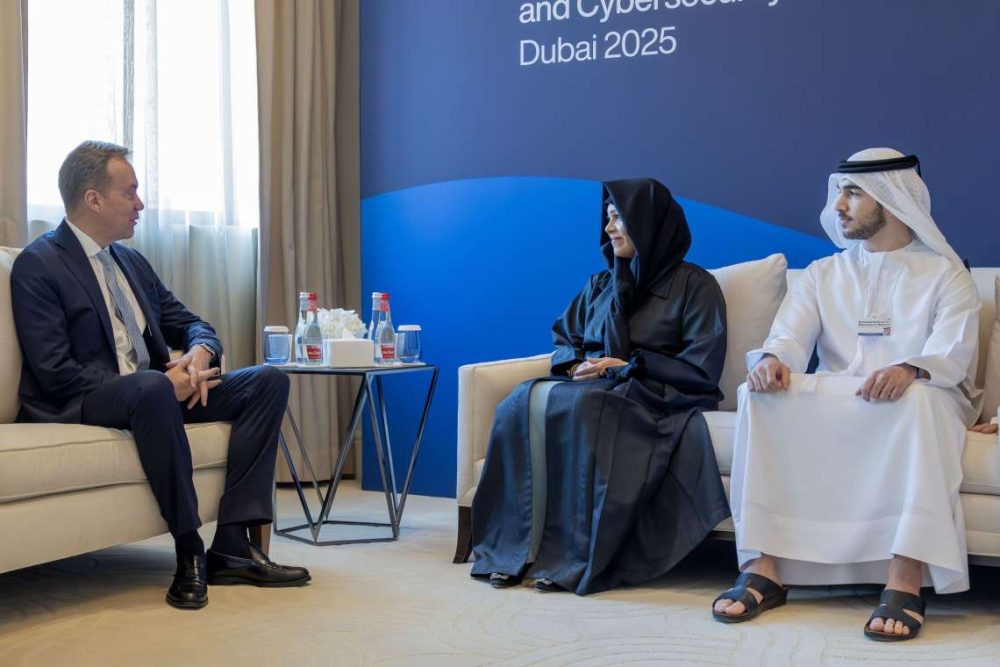Democratic and Republican senators Mark Warner and John Cornyn wrote in a joint letter that the Countering America’s Adversaries Through Sanctions, under which the proposed curbs have been in consideration, has built in exemptions for national security reasons, reports Asian Lite News
A bipartisan pair of US senators on Tuesday urged the Joe Biden administration to waive possible CAATSA curbs against India for its proposed purchase of Russian S-400 surface-to-air missile defence systems saying such a move could “derail deepening cooperation with India”.
Democratic and Republican senators Mark Warner and John Cornyn wrote in a joint letter that the Countering America’s Adversaries Through Sanctions (CAATSA), under which the proposed curbs have been in consideration, has built in exemptions for national security reasons.
“We believe that a waiver for India is appropriate for several reasons,” the senators wrote, adding that India has been cutting its dependence on Russia for defence purchases and, more importantly, “Imposing sanctions at this time could derail deepening cooperation with India across all aspects of our bilateral relationship – from vaccines to defencse cooperation, from energy strategy to technology sharing.”
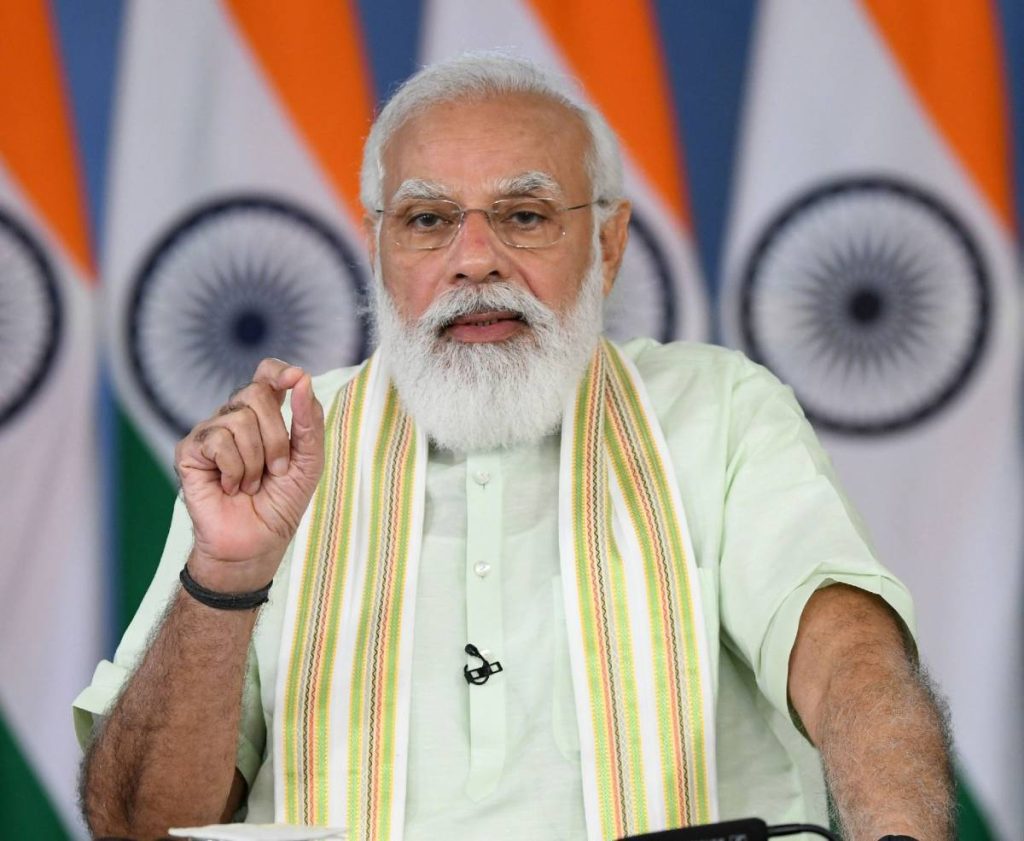
Sanctions could also embolden Indian critics who have been warning that the United States “will not be a consistent and reliable partner for cooperation”, they wrote further.
The United States has been mulling CAATSA sanctions on India for the proposed purchase of Russian S-400 surface-to-air missile defence systems. India has paid for five and they are expected to be delivered this year.
Under CAATSA, a defence deal becomes sanctionable as soon as the purchased equipment is delivered – as it happened when Turkey, a NATO ally, received its S-400s in December 2020.
India expects it will be exempted from sanctions for several reasons. It began negotiating the purchase before CAATSA became law in 2017 and there was not a counter-offer from the United States at the time. The US subsequently offered Terminal High Altitude Area Defense (THAAD) and Patriot Advance Capability (PAC-3) in 2019, by which time the S-400 deal had been finalised.
There is also a hope in New Delhi that the United States will not jeopardise the relationship, which is booming, by imposing sanctions on India.
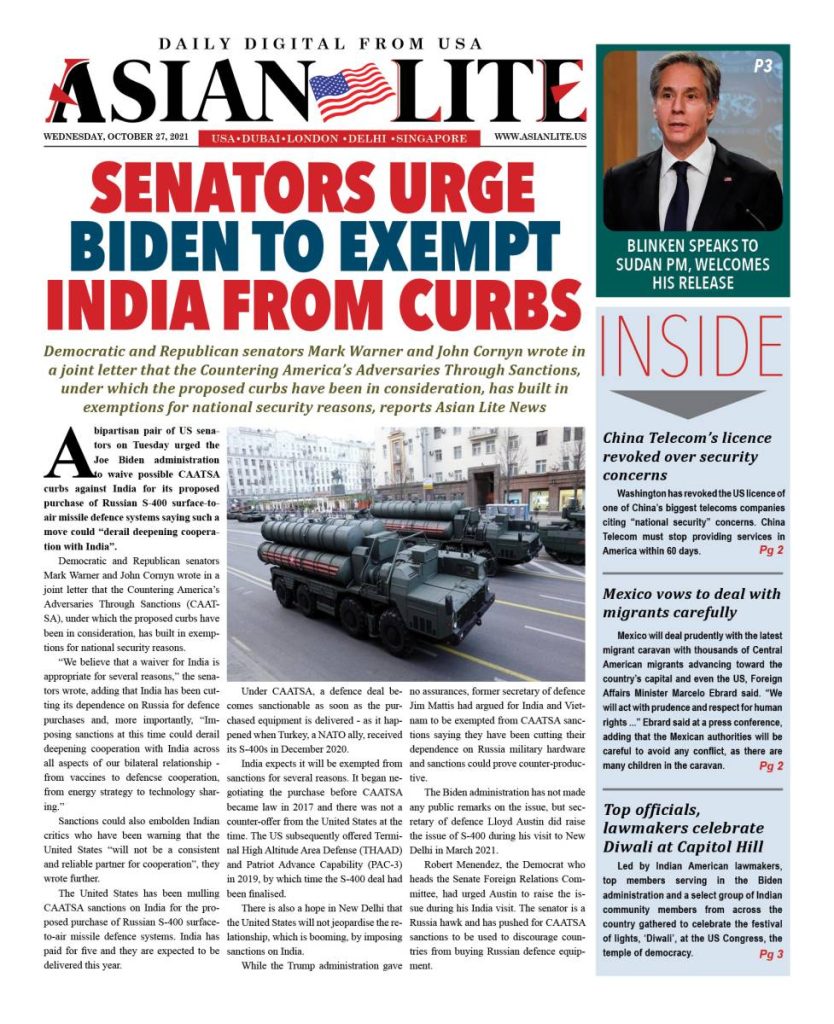
While the Trump administration gave no assurances, former secretary of defence Jim Mattis had argued for India and Vietnam to be exempted from CAATSA sanctions saying they have been cutting their dependence on Russia military hardware and sanctions could prove counter-productive.
The Biden administration has not made any public remarks on the issue, but secretary of defence Lloyd Austin did raise the issue of S-400 during his visit to New Delhi in March 2021.
Robert Menendez, the Democrat who heads the Senate Foreign Relations Committee, had urged Austin to raise the issue during his India visit. The senator is a Russia hawk and has pushed for CAATSA sanctions to be used to discourage countries from buying Russian defence equipment.


